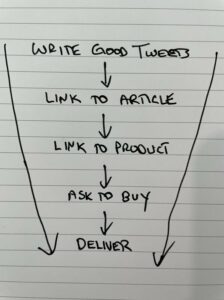
With the ever-growing application and implementation of digital technologies in almost every industry in the world, the financial industry, being an important player in the running of every other industry is always at the forefront of adopting innovations in digital technology. With the help of modern technology, businesses that offer any type of financial service are now reshaping the ways financial transactions are carried out, whether between individuals, businesses, or anything in between.
In this regard, many new startups are cropping up that are developing new systems, or retooling legacy ones by infusing modern tech tools into how business is done, in order to achieve efficiency, fast processing, and greater transparency among others.
In this new financial world, companies that embrace the technological changes need to ensure that they are catering to the real needs of users, while they are doing all in their power to remain compliant with all the rules and regulations that will help protect them as well as their customers from unlawful and malicious activities.
Anti-Money Laundering Considerations
Money laundering has always been one of the biggest concerns plaguing the financial industry. Although not as common as it once was, there are still individuals that try to engage in this unlawful activity. With the rise of technology, many of them have new solutions at their disposal that make these activities more difficult to track and detect. However, there are startups that see this space as their battleground. These startups like Kyros AML Data Suite based in Tallinn, are using their expertise as financial professionals to take on a proactive approach to tackling such threats.
The Kyros AML Data Suite, for example, offers its clients several KYC (Know Your Customer) and anti-money laundering (AML) solutions implemented in a single, user-friendly dashboard designed to onboard and monitor users with ease. The fact that this cloud-based SaaS solution works in synergy with your regular back office, enables the software tool to instantly flag any suspicious activity.
Cyber Attack Prevention
Cyber attacks are another risk that’s threatening fintech security. Since the majority of transactions are nowadays conducted through the online sphere, cyber security, and cyber attack prevention have become even more pivotal.
Not only can a successful cyber attack compromise confidential customer data and cause significant financial loss, but the damage to the reputation of the fintech company can almost be irreparable. In order to tackle these issues, modern fintech companies need to implement robust cybersecurity measures that will help them keep both their customers and their own assets safe.
These cybersecurity measures should include strong and reliable firewalls, multi-factor authentication, and regular software and system updates. Aside from these, regular vulnerability assessments and other security checks are also mandatory.
Data Breach Prevention
Data breaches can happen when an unauthorized party gains access to sensitive information they are not supposed to have access to. This data can include everything from credit card details, crypto transactions, social security numbers, and details of financial transactions, all the way to other personal information of users or that of the business owners themselves. The consequences that could come from data breaches, oftentimes include identity theft, financial loss, and, of course, reputational damage to the company.
Naturally, protecting such information at all costs should be front and center for every fintech business. This can be easily achieved with the proper use of strong data encryption, strict access controls aimed at preventing breaches, as well as regular data backup.
Compliance Risk Assessment and Considerations
As mentioned previously, all companies operating within the financial industry need to ensure that they are compliant with any rules and regulations set in place by governing authorities.
As mentioned earlier, fintech companies need to always follow through with all AML and KYC regulations. In order to achieve this, they need to ensure that they understand all the rules and regulations that are set by the authorities. What’s more, they constantly need to stay up-to-date and search for any news and changes regarding the regulations that are currently in place. Needless to say, failure to comply with these can lead to serious consequences. Aside from fines and reputational damage, companies that do not comply run the risk of losing their business licenses.
On the bright side, there are nowadays many fintech startups that are in charge of ensuring that every business operating in the financial sector stays compliant. With their compliance programs, employee training programs, tools designed to monitor transactions for suspicious activities, and regular audits, compliance has become easier than ever.
Branching Out with Fintech Solutions
One of the greatest things about fintech solutions is that they can be implemented across different industries and sectors. In the case of AML solutions, for instance, compliance is already ensured with various regulations and policies, so the same solution can be applied to different sectors, such as eCommerce, mobile banking, eWallets, and so on.
In other words, you can have a centralized solution that can branch out across different financial institutions and sectors, so both businesses and their clients or customers can benefit from that solution. After all, preventing fraud and other financial crimes is one of the top priorities for every business or institution that handles financial transactions on a daily basis.
Catering to the Weakest Link
It’s a well-known fact that consumers are often not very careful when it comes to protecting their financial and personal data. This is due to the simple fact that the vast majority of consumers are just not tech-savvy enough to realize the potential dangers of online and electronic transactions. Being potential targets for cybercriminals, consumers can unintentionally endanger businesses and institutions they deal with. This is especially true today when social-engineered scams have become more sophisticated than ever before. Consumers may be able to spot a simple phishing scam, but when it comes to more advanced social-engineered schemes, even the most vigilant of consumers can potentially fall for this type of scam. That said, AML solutions and other fintech security products can prevent potential issues from spreading around and causing major problems. With proper security measures and policies in place, the potential damage from cyber attacks and phishing scams can be mitigated and minimized for everyone involved.
Potential Issues Down the Line
Although modern fintech solutions can provide a unified way to sort out regulatory and compliance needs, there are some potential issues down the line that needs to be properly addressed. For example, even if one or more fintech solutions become globally adopted, different policies and regulations that operate in different countries would pose a serious obstacle. In other words, a consensus and compromise would have to be reached for financial institutions across the world to adopt new ways of doing things and new regulations regarding financial processes and operations. It would take a monumental amount of effort and time to ensure collaboration and cooperation between different financial facilities.
Closing Words
In the end, although fintech startups bring innovative and creative ideas to the world of finances, there’s still a lot of work to be done. Their ideas are more than capable of becoming legitimate solutions that can revolutionize the entire financial industry as we know it.
Fortunately for everyone involved, fintech solutions are becoming increasingly accepted and implemented by many businesses and financial institutions, which means that everything is going in the right direction. So, it’s safe to say that both businesses and customers can expect to see improved security, data protection, more seamless payment processing options, and greater ease of use, in the not-so-distant future.
- SEO Powered Content & PR Distribution. Get Amplified Today.
- PlatoAiStream. Web3 Data Intelligence. Knowledge Amplified. Access Here.
- Minting the Future w Adryenn Ashley. Access Here.
- Source: https://techstartups.com/2023/04/28/how-fintech-startups-are-revolutionizing-the-financial-industry/
- :has
- :is
- :not
- $UP
- a
- Able
- About
- accepted
- access
- Achieve
- achieved
- across
- activities
- activity
- adopt
- adopted
- Adopting
- advanced
- After
- All
- already
- also
- Although
- always
- AML
- among
- amount
- an
- and
- Another
- anti-money laundering
- any
- Application
- applied
- approach
- ARE
- around
- AS
- assessment
- assessments
- Assets
- At
- attack
- Attacks
- audits
- Authentication
- Authorities
- back
- Backup
- Banking
- based
- basis
- battleground
- BE
- become
- becoming
- been
- before
- being
- benefit
- between
- Biggest
- both
- Branch
- breach
- breaches
- Bright
- bring
- business
- business owners
- businesses
- but
- by
- CAN
- capable
- card
- careful
- case
- Cause
- causing
- Center
- centralized
- Changes
- charge
- Checks
- clients
- collaboration
- come
- comes
- Common
- Companies
- company
- compliance
- compliant
- compromise
- Concerns
- conducted
- Consensus
- Consequences
- constantly
- Consumers
- controls
- cooperation
- Costs
- could
- countries
- course
- Creative
- credit
- credit card
- Crimes
- Currently
- customer
- customer data
- Customers
- cyber
- Cyber Attack
- Cyber Attacks
- cyber security
- cybercriminals
- Cybersecurity
- daily
- dangers
- data
- Data Breaches
- data protection
- deal
- designed
- details
- developing
- different
- difficult
- digital
- digital technology
- direction
- do
- doing
- done
- down
- due
- Earlier
- ease
- ease of use
- easier
- easily
- ecommerce
- efficiency
- effort
- Electronic
- embrace
- Employee
- enables
- encryption
- end
- engage
- enough
- ensure
- ensuring
- Entire
- especially
- Even
- EVER
- ever-growing
- Every
- everyone
- everything
- example
- expect
- expertise
- facilities
- Failure
- Fall
- FAST
- Finances
- financial
- financial crimes
- Financial institutions
- Financial sector
- financial service
- fines
- fintech
- Fintech Companies
- FINTECH COMPANY
- fintech startups
- firewalls
- follow
- For
- forefront
- fraud
- from
- front
- future
- Gains
- Globally
- going
- governing
- greater
- greatest
- Handles
- happen
- Have
- help
- How
- However
- HTTPS
- ideas
- Identity
- identity theft
- if
- implement
- implementation
- implemented
- important
- improved
- in
- In other
- include
- increasingly
- individuals
- industries
- industry
- information
- innovations
- innovative
- instance
- instantly
- Institution
- institutions
- into
- involved
- issues
- IT
- ITS
- jpg
- just
- Keep
- Know
- Know Your Customer
- KYC
- KYC (Know Your Customer)
- Laundering
- lead
- Legacy
- legitimate
- licenses
- like
- Line
- losing
- loss
- Lot
- major
- Majority
- make
- mandatory
- many
- May..
- means
- measures
- mentioned
- Mobile
- Mobile banking
- Modern
- Monitor
- monumental
- more
- most
- multi-factor authentication
- Need
- Needless
- needs
- New
- new solutions
- news
- now
- numbers
- obstacle
- of
- offer
- Offers
- Office
- often
- oftentimes
- on
- Onboard
- once
- ONE
- online
- only
- operate
- operating
- Operations
- Options
- or
- order
- Other
- Others
- out
- own
- owners
- party
- payment
- payment processing
- personal
- personal data
- phishing
- phishing scam
- Phishing Scams
- pivotal
- Place
- plato
- Plato Data Intelligence
- PlatoData
- player
- policies
- potential
- potentially
- power
- prevent
- preventing
- Prevention
- previously
- Proactive
- problems
- processes
- processing
- Products
- professionals
- Programs
- proper
- properly
- protect
- protecting
- protection
- provide
- reached
- real
- realize
- regard
- regarding
- regular
- regulations
- regulatory
- reliable
- remain
- reputation
- revolutionize
- Revolutionizing
- Rise
- Risk
- risk assessment
- robust
- rules
- Run
- running
- SaaS
- safe
- Said
- same
- Scam
- scams
- schemes
- seamless
- Search
- sector
- Sectors
- security
- Security Measures
- see
- sensitive
- serious
- service
- set
- several
- should
- significant
- Simple
- since
- single
- So
- Social
- Software
- solution
- Solutions
- some
- sophisticated
- Space
- Spot
- Spreading
- Startups
- stay
- Still
- strict
- strong
- successful
- such
- suite
- supposed
- suspicious
- synergy
- system
- Systems
- Take
- Tallinn
- targets
- tech
- technological
- Technologies
- Technology
- than
- that
- The
- the world
- theft
- their
- Them
- themselves
- There.
- These
- they
- things
- this
- threats
- Through
- time
- to
- today
- tool
- tools
- top
- track
- Training
- Transactions
- Transparency
- true
- type
- understand
- unified
- up-to-date
- Updates
- use
- user-friendly
- users
- using
- various
- Vast
- very
- vulnerability
- was
- Way..
- ways
- we
- WELL
- well-known
- when
- whether
- which
- while
- will
- with
- within
- words
- Work
- works
- world
- would
- you
- Your
- zephyrnet












